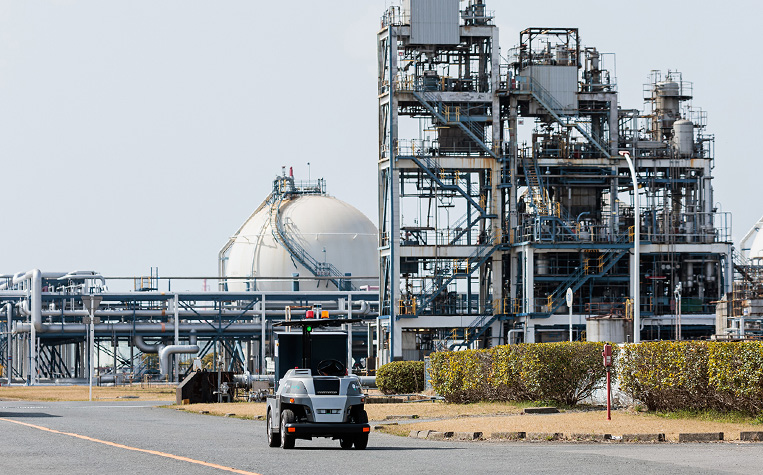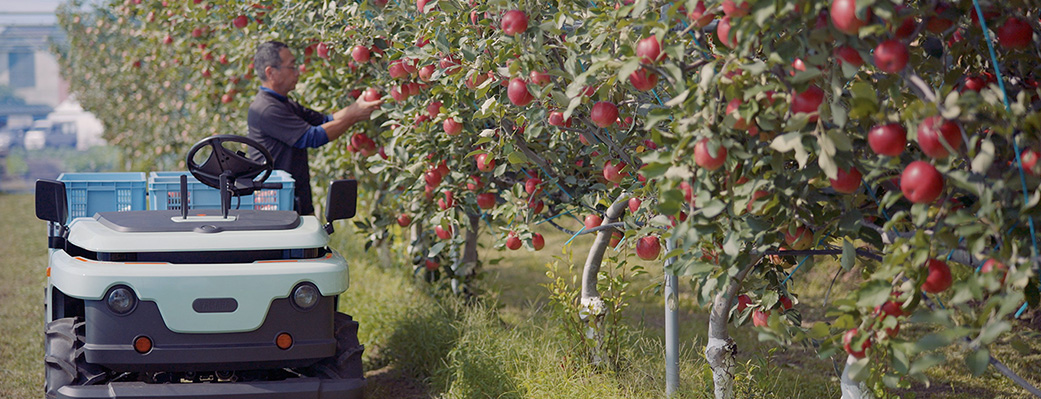New businesses positioned as strategic business fields in our Medium-Term Management Plan (2022 – 2024) include low-speed automated drive vehicles, vehicles for the agriculture field and others, and they are aimed at addressing Material Social Issues (Materiality) in the “transportation and industry” and “environment and resources” fields. Toward the aim of starting new businesses in these fields, YMC has sought partners such as start-ups with high levels of specialization in various sectors with whom to engage globally in joint business efforts and co-creation. Also, these efforts have led to major advances in foundational technologies, which has in turn led to an acceleration in efforts to seek solutions for a range of societal issues.
In the field of agriculture, successes have been made in the development of high-spec drones through Yamaha’s investment. One such company builds automated strawberry harvesting robots, and is among several like it in the U.S. and Australia. This is in addition to a consortium of 10 companies and organizations in Japan working toward drone development. We have proposed one solution for the pressing issue of a shrinking and aging labor force in agriculture in the form of an Automatic-Guided Orchard Support Vehicle for work in orchards.

Through a joint venture with Tier IV Co., Ltd., with its extensive experience in automatic drive systems, the company eve autonomy was established in 2020. In combination with Yamaha Motor’s chassis development technology, it was possible to develop an easy-to-use automated transport solution. The resulting “eve auto” that was developed is compact enough to operate inside factory buildings while also featuring strong towing and large load carrying capacities. Following development, we conducted extensive tests with it in our own factories in preparation for full-fledged practical use.
Through this process, we began accepting advance orders for the eve auto in the following year, 2021. This service is offered as a subscription-type contract with the aim of eliminating the main initial introduction hurdles of high initial costs and extended implementation processes that often hinder the adoption of automation. The company also provide fleet management systems and after-sales support. In 2022, companies began on-site trials in several factories, thus contributing to better-automated transport processes.
.










